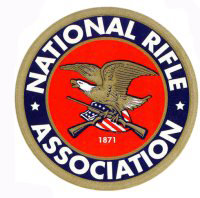INTERPOL Rumors

Washington, DC –-(AmmoLand.com)- Over the past year, we have reported several times on the abundance of rumors being circulated regarding firearm issues. Among other things, we’ve heard phony tales circulating about such things as guns being banned for the elderly, ammunition with expiration dates, a requirement that guns be listed on tax returns, and a prohibition on gun and ammunition imports. The latest scuttlebutt has to do with a recent Executive Order by President Obama concerning the International Criminal Police Organization (INTERPOL).
Some have argued that the order would make INTERPOL and its officials immune from civil suit or criminal prosecution, and that it would therefore allow INTERPOL personnel to seize firearms, kidnap Americans, and otherwise violate U.S. citizens’ rights. Our legal staff has reviewed this order and does not believe it poses any of these threats.
President Obama’s order amends a 1983 order by President Reagan, in which the U.S. recognized INTERPOL as an international organization that is entitled to certain legal immunities under the International Organizations Immunities Act (IOIA).
One of those immunities is immunity from civil lawsuits. Under the doctrine of “sovereign immunity,” foreign governments generally can’t be sued, and the IOIA extended that protection to international organizations. This has been applied to block suits against the United Nations, Organization of American States, and other international bodies.
This means that articles on the recent order are incorrect in claiming that the order made INTERPOL immune from civil suits; INTERPOL was already immune.
Some have also suggested that under the order, INTERPOL agents would receive diplomatic immunity, so they could violate Americans’ rights without fear of criminal prosecution. There are several misconceptions here.
First, diplomatic immunity only protects diplomats, and the IOIA specifically says it does not confer diplomatic immunity on international organization employees.
Second, while the IOIA does provide a limited type of immunity for international organization employees, this is only immunity “relating to acts performed by them in their official capacity.” U.S. courts have interpreted this narrowly. In one case, a court found that a U.N. employee was not immune to a local speeding ticket even though he was actually driving the Secretary General of the U.N. to an official conference. In other cases, courts have found that employees of international organizations can be prosecuted for espionage, because espionage is not among their official duties.
Law enforcement officers working with INTERPOL are detailed from agencies in various countries, such as the FBI or the Royal Canadian Mounted Police. They have no power of arrest outside their own countries. Therefore, a seizure of an American (or of an Americans’ firearms) would likely not fall within the official duties for which INTERPOL officials would be immune from prosecution.
Now don’t take any of this to mean that we underestimate our anti-gun opponents, or that we don’t believe they would happily and readily seize the opportunity to adopt and enforce measures that would limit our freedom. We know full well that they would. Rather, our message is this: Rumors abound, so don’t believe everything you read. If it’s a legitimate concern, rest assured your NRA-ILA will promptly address it and will give you the straight story.
